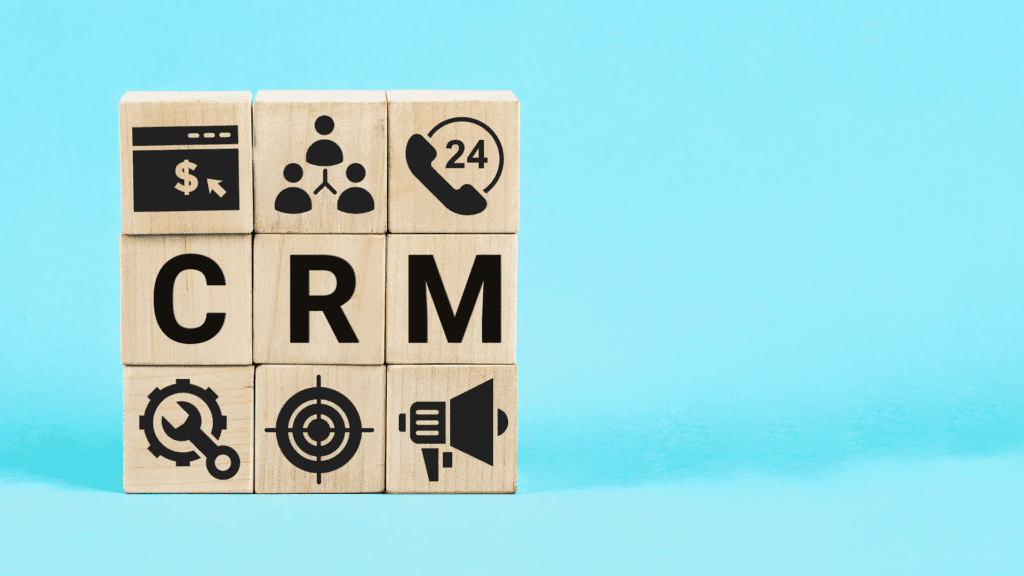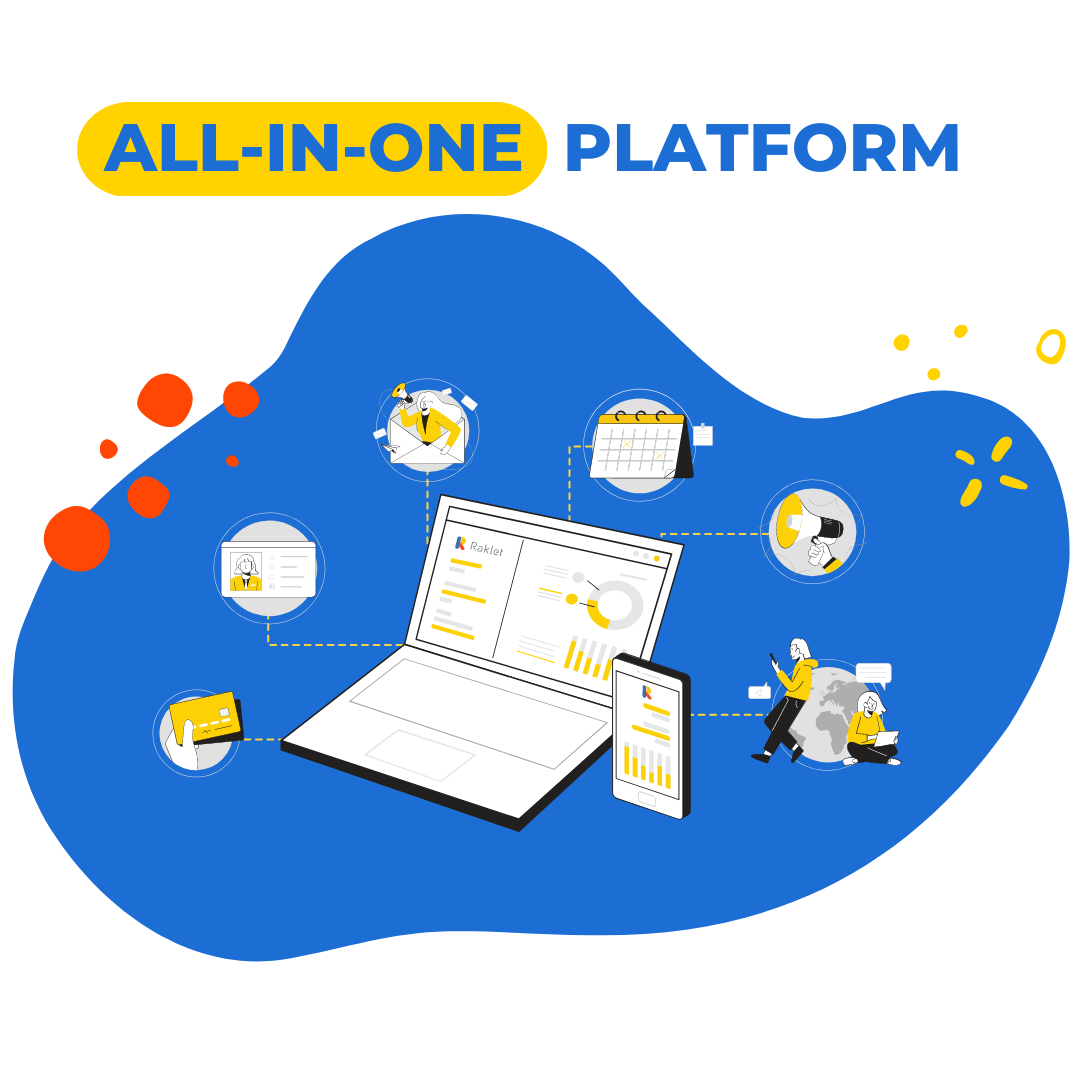Customer relationship management is a powerful business tool that can help you build, manage, and maintain strong relationships with your customers. But if you’re new to the world of CRM, it can be difficult to get started. From the basics of what CRM is and how it works to advanced strategies for increasing customer engagement and loyalty, here’s everything you need to know about contact relationship management.
What is Customer Relationship Management (CRM)?
Customer relationship management and customer service teams are business strategies that involve the use of technology and data analysis to manage interactions with customers and potential customers. At its core, CRM is all about building strong and lasting relationships with customers, with the ultimate goal of improving customer satisfaction, loyalty, and retention. By using a range of tools and strategies, businesses can gain a deep understanding of their customers’ needs, preferences, and behaviors, and tailor their sales and marketing efforts accordingly.

The most important feature of CRM is the ability to centralize customer data and make it easily accessible to all members of an organization. This can include everything from basic contact information to more detailed data on customer preferences, purchase history, and interactions with your business. By having a centralized CRM database of customer information, businesses can ensure that all employees have access to the same information, and can provide a more personalized and effective customer experience.
Another important aspect of CRM is its ability to automate many routine customer interactions, such as follow-up emails or promotional offers. By automating these processes, businesses can save time and resources, while still providing a high level of customer service. Additionally, by tracking customer interactions and behaviors over time, businesses can gain valuable insights into customer needs and preferences, and use CRM information to develop more targeted and effective marketing campaigns.
Why is Customer Relationship Management?
Customer service automation is a vital strategy that helps businesses build and maintain strong relationships with their customers. By using CRM, companies can gain a better understanding of their customer’s needs and preferences, which can help them tailor their products and services to meet those needs. In addition, CRM can help businesses improve customer satisfaction and loyalty, which can lead to increased sales and revenue.
One of the primary reasons why customer relationship management is important is because it can help businesses create more personalized experiences for their customers. By collecting and analyzing data on customer behavior and preferences, companies can gain valuable insights into what their customers want and need. With this information, businesses can create targeted marketing campaigns and tailor their products and services to better meet customer needs.
Another reason why customer service automation is important is that it can help businesses improve customer retention. By keeping track of customer interactions and identifying potential problems or issues, companies can proactively address these concerns and prevent customers from leaving. This can lead to increased customer loyalty and repeat business, which can ultimately lead to increased revenue.
Finally, crm platform can help businesses improve their overall efficiency and productivity. By automating tasks such as customer communication and data analysis, companies can save time and resources that can be reinvested in other areas of the business. This can help businesses streamline their operations and improve their bottom line. You can benefit from Raklet’s communication module to keep your private data and easily filter them according to your needs; you can develop your CRM strategy.
What Does a Customer Relationship Do?
A customer relationship manager is responsible for managing interactions between a business and its customers, to improve customer satisfaction and increase customer loyalty. This involves tracking customer interactions across multiple channels, including social media, email, phone, and in-person interactions, and using this information to better understand each customer’s needs and preferences.
One of the key functions of a CRM platform is to develop and maintain a database of customer information, including contact details, purchase history, and feedback. This information can be used to personalize the customer experience, such as by offering tailored product recommendations or targeted marketing campaigns based on past behavior.
CRM also plays an important role in managing customer feedback and complaints. By tracking and responding to customer complaints, a customer relationship manager can help to address customer concerns, prevent negative word-of-mouth, and ultimately improve customer satisfaction. In addition, a customer relationship manager can use feedback from customers to identify areas for improvement and make changes to products or services accordingly.
Finally, managing customer relationships can help to build and maintain long-term customer relationships through ongoing communication and engagement. This may involve regular outreach via email or social media, as well as targeted promotions or loyalty programs designed to reward repeat customers. Customer relationship management is one of the most effective tools of the digital world. By nurturing these relationships, a customer relationship manager can help to ensure that customers remain loyal to the business and continue to generate revenue over the long term.
Why Should You Use Customer Relationship Management Software?
Using marketing crm software can provide a range of benefits to businesses of all sizes. One of the primary advantages of using CRM software is that it can help to streamline and automate many of the tasks associated with managing customer relationships, such as tracking customer interactions and analyzing customer data. This can help to improve efficiency and productivity and free up time for employees to focus on other important tasks.
Another key advantage of using marketing CRM is that it can provide businesses with valuable insights into customer behavior and preferences. By tracking customer interactions and analyzing customer data, businesses can gain a deep understanding of their customer’s needs and preferences, and tailor their sales and marketing efforts accordingly. Raklet’s CRM software for non-profit organizations can help to improve customer satisfaction, increase customer loyalty, and ultimately drive revenue growth.
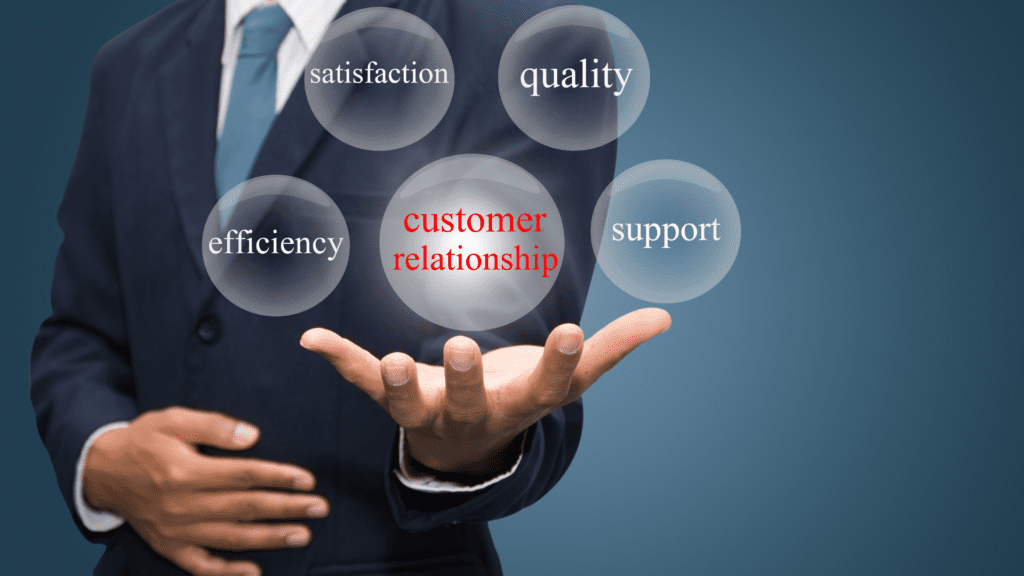
Finally, CRM software can help businesses to improve communication and collaboration across teams and sales teams. By providing a centralized database of customer information, CRM software can ensure that everyone in the organization has access to the same information and can work together to provide a more personalized and efficient customer experience. This can help to build stronger relationships with customers and ensure that everyone in the organization is working towards the same goals. To manage a healthy customer relationship, you may want to consider taking a look at Raklet’s top 10 CRM modules.
What Kind of Customer Relationship Management System is Right for You?
When choosing the right customer relationship management (CRM) system, it is essential to evaluate your business needs and goals. There are several customer relationship management types of systems available, including cloud-based, on-premise, and hybrid options. Each type offers different benefits and drawbacks, and choosing the right one depends on your business’s unique requirements.
Cloud-based CRM systems are increasingly popular due to their flexibility and accessibility. Customizable CRM is hosted on remote servers and can be accessed from anywhere with an internet connection. This makes them ideal for small businesses that do not have the resources or infrastructure to manage an on-premise system. Cloud-based systems also typically offer monthly subscription plans, making them a more cost-effective option for businesses with limited budgets.
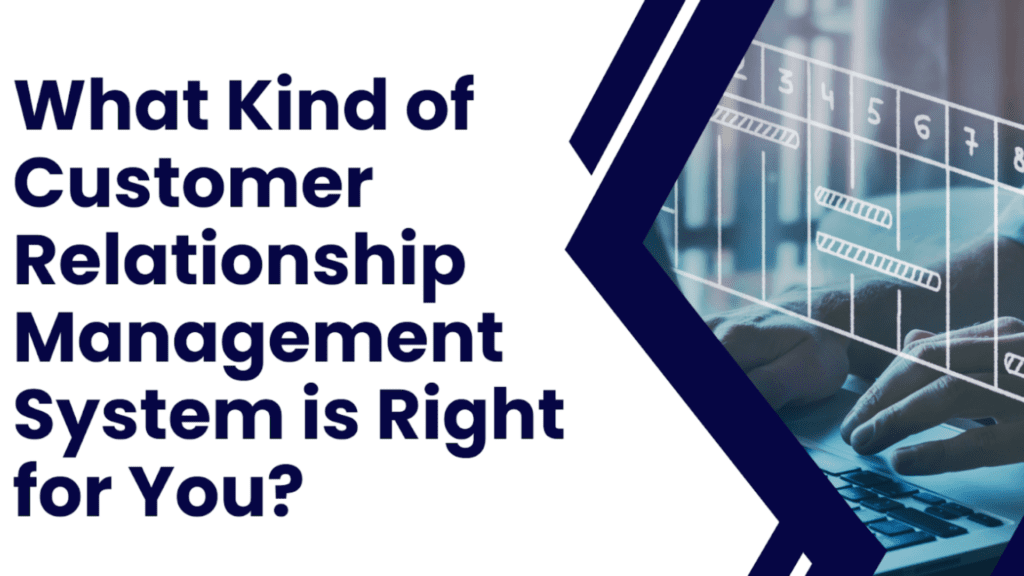
On-premise CRM systems, on the other hand, are installed on your company’s servers and require a dedicated IT team to manage and maintain. While they offer more control over your data and customization options, they can be costly to set up and maintain. They are a better fit for larger enterprises that have the resources and expertise to manage an on-premise system.
Hybrid CRM systems combine the benefits of cloud-based and on-premise systems. They offer the flexibility of cloud-based systems with the control and customization of on-premise solutions. Hybrid systems are a great option for businesses that require both accessibility and control over their data. If you are wondering how to use a correct CRM database, you can take a look at Raklet’s CRM databases site.
In conclusion, the type of crm platform that is right for your business depends on your unique needs and goals. It is essential to consider factors such as budget, IT resources, and scalability when choosing a CRM system. By carefully evaluating your options and selecting the right CRM system, you can streamline your business processes, improve customer satisfaction, and ultimately, drive growth and success.
What are the top 5 Benefits of Customer Relationship Management?
Implementing a customer relationship management system can bring a range of benefits to your business. Here are five of the top benefits of using a CRM platform:
Improved customer relationships:
A contact management system can help you better understand your customers’ needs and preferences, allowing you to tailor your products and services to better meet their needs. By providing personalized and timely communication, you can improve customer satisfaction and loyalty.
Increased efficiency:
A CRM system can streamline your business processes and eliminate manual tasks. By automating tasks such as data entry and lead management, your employees can focus on more important tasks such as sales and customer service. This can increase productivity and reduce costs. You can take your brand to the top with CRM, which is more useful than excel template.
Better sales performance:
A CRM system can help you track your sales pipeline and identify potential opportunities. With a better understanding of your customer base, you can create targeted marketing campaigns and improve your sales conversion rates. This can lead to increased revenue and profitability.
Improved reporting and analytics:
A CRM system can provide detailed reporting and analytics capabilities, allowing you to gain valuable insights into your business performance. By tracking customer behavior and preferences, you can make more informed business decisions and identify areas for improvement.
Enhanced collaboration:
A contact management system can improve collaboration and communication across different departments within your organization. By sharing customer data and insights, teams can work together more effectively to provide a better customer experience. This can lead to increased customer satisfaction and loyalty. Enhanced collaboration: A CRM system can improve collaboration and communication between different departments in your organization. By sharing the ultimate guide for enterprise and insights, teams can work together more effectively to provide a better customer experience. This can lead to increased customer satisfaction and loyalty.
How Much Does Online Customer Relationship Management Software Cost?
Online manage customer relationships software has a wide range of features and pricing plans that meet different business needs. The cost of online CRM software can vary depending on the provider, features, and the number of users. Some providers offer free plans with limited features, while others offer more advanced plans with a higher price tag.
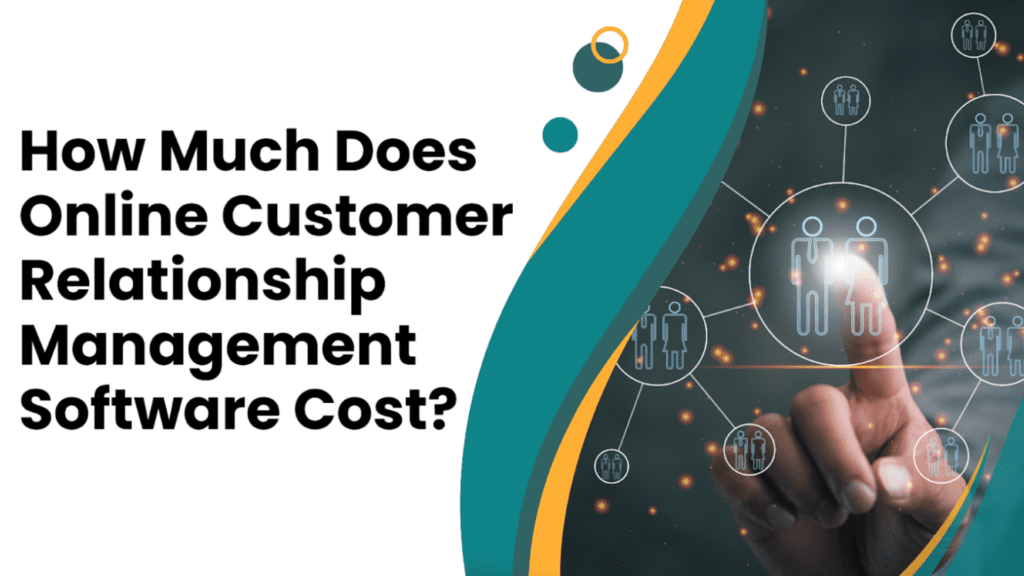
The cost of online manage customer relationships software usually starts at around $12 to $15 per user per month for basic plans. Mid-level plans with more features and integrations can cost anywhere from $25 to $50 per user per month. Advanced plans that include features such as automation and artificial intelligence can cost up to $100 per user per month.
When comparing costs, it’s important to consider the overall value that online CRM software provides. While it may seem expensive, investing in the right CRM software can help businesses save time, improve customer relationships and increase revenue in the long run. Many providers also offer free trials or demos that can help businesses test the software and determine if it fits their needs and budget.
What are the Features to Look for in Customer Relationship Management Software (CRM)?
Choosing the right customer relationship management software is essential for businesses to manage their customer interactions effectively. Here are some features to look for in CRM software:
Contact Management:
This feature allows businesses to keep track of all customer relationships and maintain customer records. It includes the ability to create, edit, and update customer profiles, view communication history, and manage contact lists.
Sales and Marketing Automation:
Sales and marketing automation features enable businesses to streamline their sales processes and automate marketing campaigns. This feature includes lead management, opportunity tracking, email marketing, and analytics.
Customization:
Every business has unique needs, and CRM software should be customizable to meet those needs. Look for software that allows you to create custom fields, workflows, and reports.
Integration:
The ability to integrate with other business tools and systems is crucial for a smooth workflow. Look for CRM software that can integrate with your email, marketing automation tools, accounting software, and other systems.
By choosing the right customer relationship management crm software that meets your business needs, you can improve your customer relationship management and streamline your business processes. Keep in mind that the best CRM software is the one that fits your unique business requirements and helps you achieve your goals.
Revolutionize the way you interact with your customers by implementing customer relationship management software in your business. With the ability to track customer interactions, monitor buying patterns, and segment your audience, you can gain valuable insights into your customers’ behaviors and preferences. By streamlining your customer service and marketing efforts, you can improve customer retention rates and increase revenue. Don’t miss out on the opportunity to enhance your customer experience and grow your business. Take the first step towards successful customer relationship management today!

